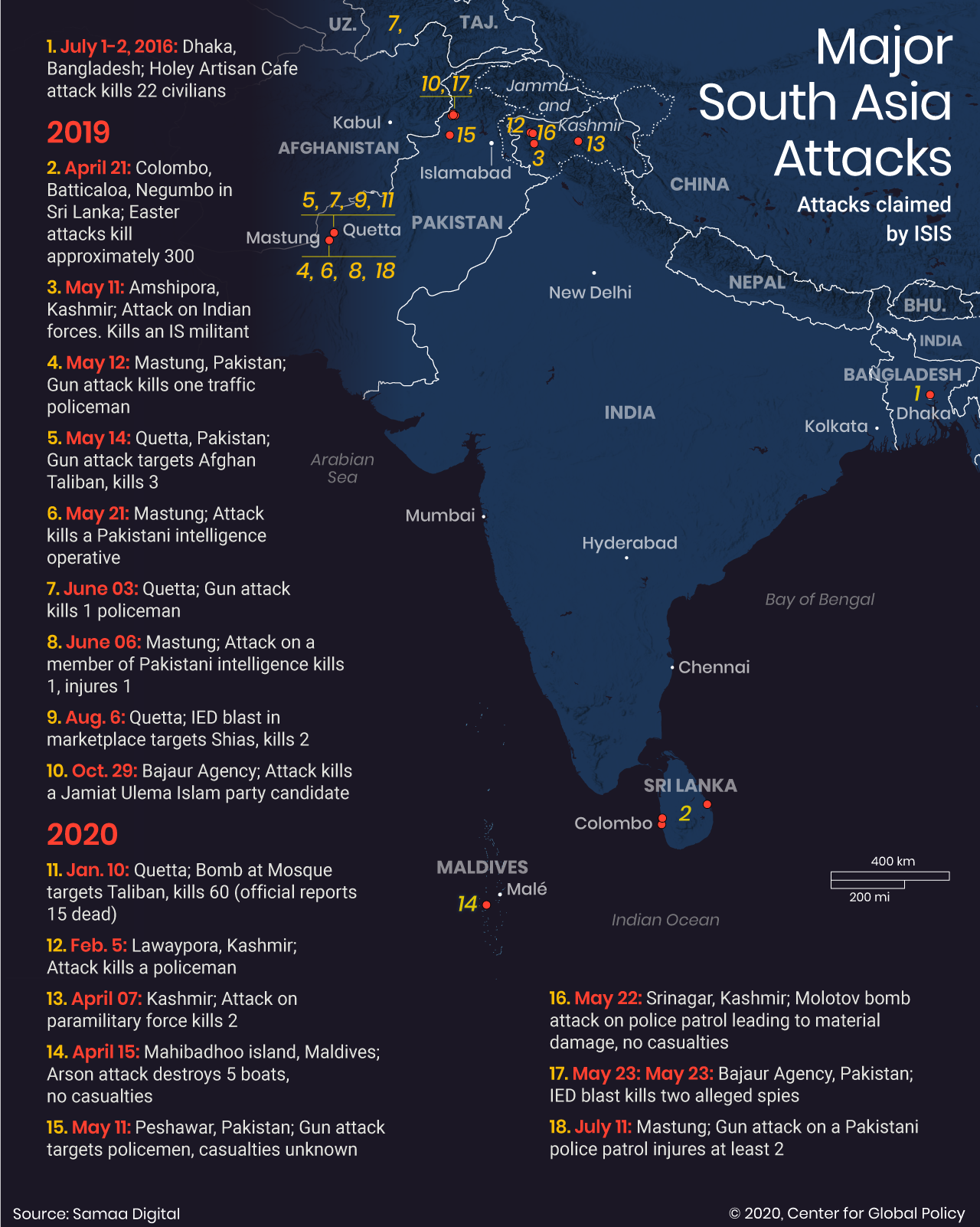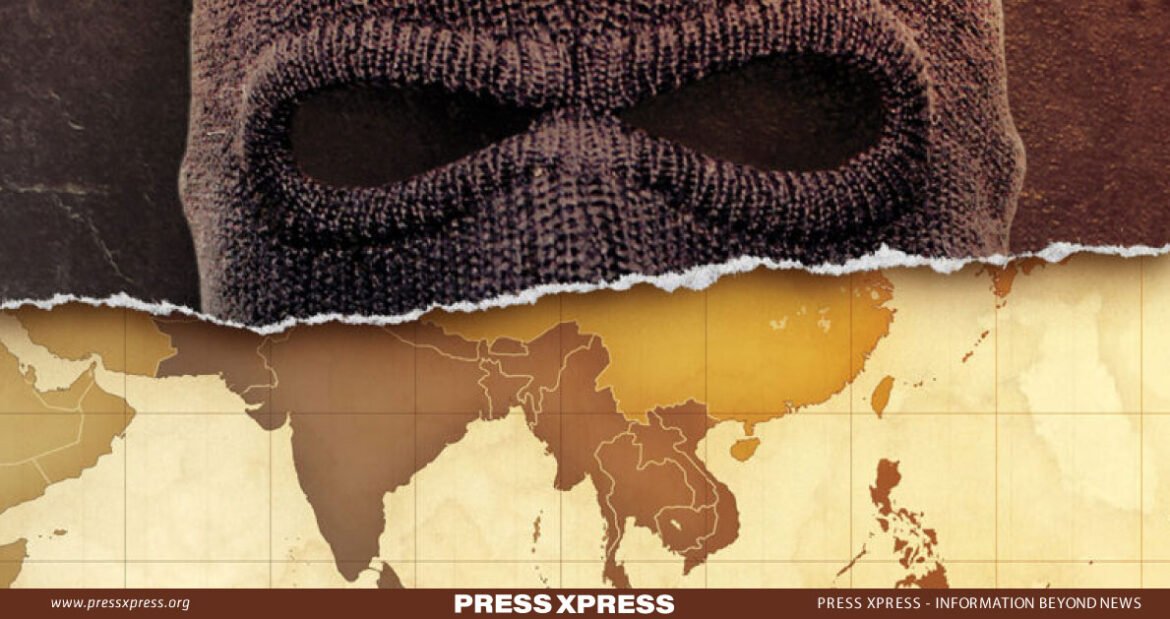The sleepy town of Dhubri in Assam was jolted awake by a high-profile arrest that sent shockwaves through the region’s security apparatus. Haris Farooqi, the notorious head of ISIS’s India operations, and his accomplice Rehan were apprehended as they attempted to slink across the Bangladesh border. The sudden arrest serves as a reminder of the persistent threat posed by the dreaded terror outfit in South Asia’s backyard.
Assam Police Chief Public Relations Officer Pranabjyoti Goswami stated that the identities of both individuals have been confirmed. It was revealed that Haris Farooqi, also known as Harish Ajmal Farukhi from Chakrata, Dehradun, is the leader of ISIS in India. Additionally, his associate, Anurag Singh, also known as Rehan from Panipat, converted to Islam, while his wife is a Bangladeshi national.
You Can Also Read: Somali Pirates Reach Out to Ship’s Owners, Initiate Contact
The birth of the ISIS menace can be traced back to the early 2000s, but it was the tumultuous events of the 2010s that propelled the group to global notoriety. Despite enduring significant territorial losses in its erstwhile strongholds of Iraq and Syria, the group’s resilience and ability to adapt have ensured its vile ideology remains a potent force to be reckoned with on the international stage.
ISIS in South Asia
For years, the looming threat of ISIS has cast a dark shadow over South Asia, a sobering reminder of the terror group’s unrelenting ambition to spread its ideology of violence far beyond its original strongholds. With a significant Muslim population, the region presents an attractive strategic target for the extremist outfit, which has left no stone unturned in its efforts to recruit, indoctrinate, and orchestrate acts of unspeakable brutality.
In the region of Afghanistan and Pakistan, the Islamic State Khorasan Province (ISKP) has emerged as a potent threat, not just to local stability but also to Western interests in the region. Exhibiting a chilling adaptability, ISKP’s tactics have evolved from a quest for territorial control to a more insidious form of urban warfare, ensuring that the specter of violence looms large despite the Taliban’s firm grip on power in Afghanistan.
Elsewhere in the region, countries like India, Bangladesh, the Maldives, and Sri Lanka grapple with their unique set of challenges posed by the ISIS menace. From the insidious spread of radicalization to the looming threat of battle-hardened fighters returning to their homelands, and the ever-present networks of homegrown Islamist militancy, the security landscape is riddled with complexities.

Yet, the robust democracies of India, Sri Lanka, and Bangladesh, bolstered by stable governments and formidable internal security mechanisms, stand as formidable bulwarks against ISIS’s bid for long-term establishment within their borders. The Maldives, however, remains a vulnerable outlier, grappling with the twin scourges of violent religious extremism and deepening social polarization.
At its core, ISIS’s strategy for South Asia is a multifaceted one – to transform the region into a fertile recruiting ground, leveraging simmering socio-political unrest to mount periodic attacks that capture global attention and breathe new life into its twisted ideology. This nefarious campaign is waged on multiple fronts, from the relentless dissemination of jihadist propaganda through online channels to the recruitment of radicalized youth and the deployment of hit-and-run attacks orchestrated by local terrorist cells and foreign fighters alike.
ISIS Activity in India and Bangladesh
India and Bangladesh have been battling ISIS’s efforts to gain a foothold. The terror group has tried recruiting, funding, and plotting attacks. But robust counter-terrorism ops have led to major busts, like the recent nab of Haris Farooqi and Rehan in Assam. These arrests underscore the ongoing scrap against ISIS’s grim South Asian ambitions and are major wins for regional security forces.
ISIS’s presence in South Asia, especially India, has been marked by attacks and increased activities aimed at spreading their twisted ideology and operations. The National Investigation Agency (NIA) in India has stayed vigilant, registering numerous cases related to ISIS activities. They’ve arrested suspected ISIS-linked individuals planning attacks within the country, highlighting the threat level posed by the group. Intel reports have even flagged potential targets like iconic landmarks, showcasing the persistent threat from ISIS sympathizers and operatives inside India.
The borders of northeastern states like Assam, which share a boundary with Bangladesh, have emerged as potential entry points for ISIS infiltration and recruitment – pointing to the transnational challenges of countering their activities. Collaboration between Indian security agencies and their Bangladeshi counterparts is crucial to address the threat of radicalization and ISIS operatives moving across the border.
Bangladesh has also faced challenges from ISIS, with major incidents highlighting the group’s intent to expand its influence in the country. However, the government has been proactive in counter-terrorism efforts, focused on dismantling ISIS networks and addressing the root causes of radicalization.
The Farooqi and Rehan arrests in Assam are significant – not just disrupting ISIS’s plans, but showcasing the effectiveness of South Asian counter-terrorism strategies. These actions strengthen regional security and contribute to the broader fight against global terror, emphasizing the importance of international cooperation and vigilance in countering extremist ideologies.
Cooperation Between India and Bangladesh
In January 2021, the two countries agreed to enhance their collaborative efforts against terrorist entities, including global terrorist groups and fugitives. This agreement was established during the first delegation-level virtual police chiefs’ dialogue, which also saw the creation of designated ‘nodal points’ for timely and effective handling of security and counter-terrorism challenges.
India and Bangladesh have emphasized the importance of sharing real-time intelligence and coordinating their efforts to combat insurgent groups operating in the region. Their discussions also covered joint actions against cross-border criminal activities like drug smuggling, counterfeit currency, arms trafficking, and human trafficking. This initiative reflects their mutual commitment to strengthening the relationship between the two countries’ police forces and consolidating their strategic partnership.
Conclusion
The arrests of Farooqi and Rehan in Assam are significant developments, dealing a blow to ISIS’s plans in the region. These arrests demonstrate the effectiveness of counter-terrorism strategies employed by security forces in South Asia. Such actions not only help disrupt the operations of terrorist groups but also send a strong message about the commitment of authorities to maintain peace and security.
These arrests are part of a broader effort to combat the global scourge of terrorism. They highlight the importance of international cooperation and vigilance in countering extremist ideologies and preventing their spread. By working together and sharing intelligence, nations can better identify and neutralize threats posed by terrorist organizations.


